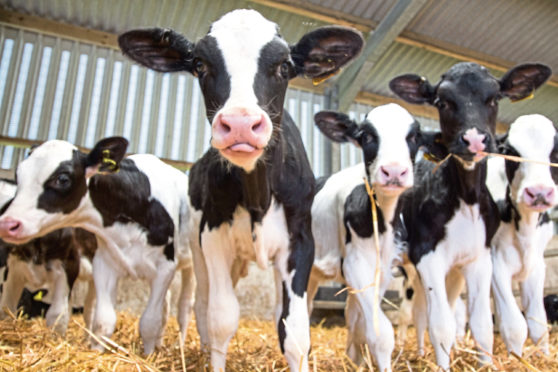British vets have called for a promotional drive to get high-welfare veal and goat meat back on the table to reduce the need to kill unwanted male animals.
In a joint policy statement, four national veterinary associations say the slaughter of an estimated 95,000 calves, 30 million chicks and 3,000 Billy kids on farms every year needs to be reduced.
The British Veterinary Association (BVA), British Cattle Veterinary Association (BCVA), Goat Veterinary Society (GVS) and the British Veterinary Poultry Association (BVPA) say the long-term aim is to move away from production of unwanted animals altogether, but meantime more research is needed into ways of reducing unwanted animals and ensuring on-farm killing methods are humane.
When there is no alternative, they insist every effort should be made to use the carcases, such as using male chicks killed by controlled atmospheric stunning to feed reptiles and birds of prey.
BVA junior vice-president James Russell said the veterinary profession could work with farmers to reduce the problem. He said: “If slaughter of affected animals is done humanely, it is not a welfare harm per se, but more measures should be taken to make sure these decisions are made with minimal carcase wastage and an eye to the economic, emotional and environmental impact at a farm leve.
“With greater public understanding of ethical and animal welfare issues faced by the industry, promotion of farm assurance schemes, and research into alternative breeding options such as selective sex technology, we hope to reduce these numbers and improve the welfare of the animals.”
The vets have advised the dairy and egg industries to adopt a ‘3Rs’ – reduce, replace, refine – approach to the rearing and slaughter of animals which are surplus to the requirements .
BCVA President, Professor David Barrett said: “We need to help consumers understand they should embrace these products.
“They are very different from intensively reared veal of the type produced in systems previously banned in the UK.”
